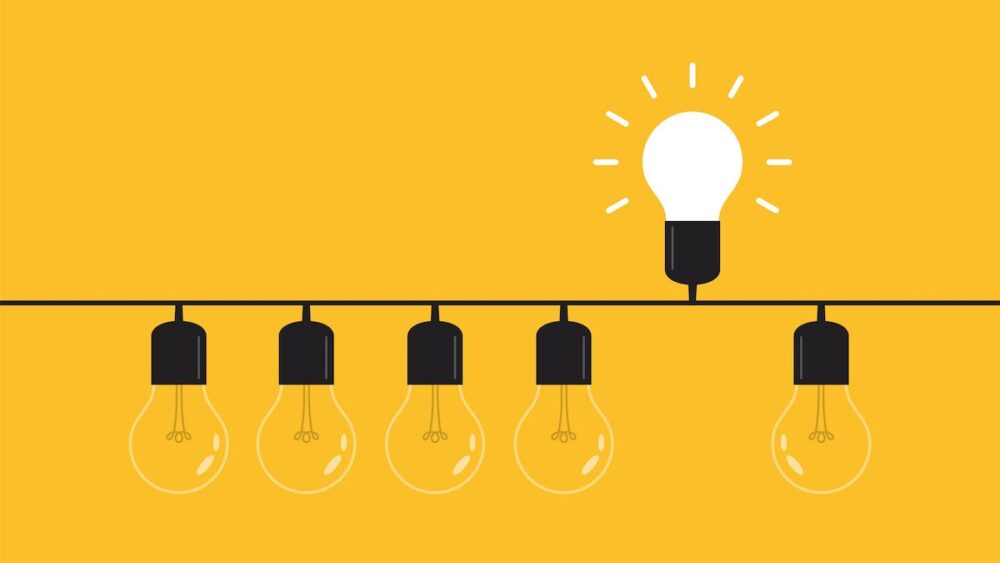 The Port of Barcelona encourages the generation of talent through the presentation of entrepreneurial projects to feed on new factors. (Gettyimages)
The Port of Barcelona encourages the generation of talent through the presentation of entrepreneurial projects to feed on new factors. (Gettyimages)
Start-ups and the Port de Barcelona: a winning collaboration
Start-ups are gaining ground in the network of collaborators of the Port of Barcelona thanks to their knowledge of advanced technologies that can solve specific challenges. Both represent two disparate business models, so in order to succeed and achieve the set goals, a close collaboration and an optimal work methodology needs to be established.
 The Port of Barcelona encourages the generation of talent through the presentation of entrepreneurial projects to feed on new factors. (Gettyimages)
The Port of Barcelona encourages the generation of talent through the presentation of entrepreneurial projects to feed on new factors. (Gettyimages)
To provide innovative responses to specific challenges. This is the scenario where start-ups emerge into the Port of Barcelona ecosystem. This trend responds to the search for solutions or operational improvements that require an answer usually found in a specific technology.
“We make sure that their value proposition has the potential to solve a real need in an innovative way. As a public entity, the Port of Barcelona carries in its DNA the contribution of public value. With these initiatives we promote the talent and development of our business fabric, as well as the digital transformation of our sector,” explains Ruth Pablo, head of the Digital Port project at the Port of Barcelona.
In addition, Barcelona is the third preferred European destination for entrepreneurs, according to the Startup Heatmap Europe 2019, only behind London and Berlin. This synergy between the Catalan capital and innovation exemplifies the good health of the start-up ecosystem in the city.
Searching for innovation
After identifying internally what the challenge to solve or improve is, the next step is to find the start-up with the more relevant value proposition. Programs such as the Smart Catalonia Challenge or Ports 4.0 encourage the generation of talent within the sector by fostering entrepreneurial projects that feed ports with innovative factors.

In addition, the city of Barcelona has several accelerators that perform a screening to connect companies or institutions with the start-up whose product meets their needs.
Founder Institute, for example, has collaborated with the Port of Barcelona since 2017 with initiatives such as the Port Challenge Barcelona, a specific acceleration program for the port-logistics sector. Another example is openPORT, which seeks to bring stakeholders of the port ecosystem closer to the world of entrepreneurship and start-ups.
“We are currently collaborating in the design of the innovation roadmap for the coming years within the framework of the IV Strategic Plan of the Port of Barcelona. The aim is to have a world-class innovation hub, physically located in the Port Barcelona or its surroundings, oriented to maritime transport, logistics, port management and the blue economy, ” detail Urs Rothmayr and Oriol Bes, directors of the Founder Institute of Barcelona.
Barcelona Tech City is a private non-profit association, a project promoted by local entrepreneurs that currently represents more than 1,000 companies from the city’s technological ecosystem, which works closely with the Port of Barcelona. Ricard Castellet, his Chief Connector Officer, explains that the Pier01 project, an innovation hub that brings together more than one hundred entrepreneurs, arises from a strategic relationship with the tech ecosystem. Castellet shares how the process of connecting corporates and start-ups works, which is one of the vectors of growth and acceleration of innovation: “Once we know the specific needs of our partners, we begin the process of identifying the start-up with the most suitable technology or business model, facilitating contact quickly and accurately,” he states.
is a private non-profit association, a project promoted by local entrepreneurs that currently represents more than 1,000 companies and works closely with the Port of Barcelona. Ricard Castellet, his Chief Connector Officer, explains that the Pier01 project, an innovation hub that brings together more than one hundred entrepreneurs, was born from a strategic relationship. Castellet explains how the selection process works: “Once we know the specific needs of our partners, we begin the process of identifying the start-up with the most suitable technology or business model, facilitating contact quickly and accurately,” he states.
“These alliances allow us to access an extensive base of entrepreneurs with an advanced knowledge of a technology that can help us solve specific needs," adds Carles Rúa, head of Strategic Projects and Innovation manager at the Port of Barcelona.
“Start-ups bring a fresh approach, a deep knowledge of new technologies and a high motivation to solve the challenge posed”
Ruth Pablo, head of the Digital Port project at the Port de Barcelona
A collaborative methodology
Once the contact has been established, the next thing is to define the objectives and assess the potential of the start-up to achieve them. This includes the definition, planning and formalization of a pilot program to verify that the technology works in a real environment, taking into account all the possible variables that may occur.
For an effective development of this trial and error phase, it is essential that the two parties work closely and share the knowledge that each one has about their field, since it is a process that can last months. “The start-up has a technology that, perhaps, can solve the challenge, but it's the company who knows the details of the problem, not the start-up. To solve it successfully, you have to work hand in hand to validate, implement and scale this technology. Otherwise, the project will fail, ” explains Rúa.
Rothmayr and Bes distinguish between established companies, which typically run well-known and market-proven business models, and start-ups, focused on the action, and with the flexibility and speed to fail and recover quickly. Collaboration between both models is one of the best ways for large companies to benefit from a different focus of innovation and strategy.
“You have to accompany them by providing information, data, contacts and some resources so the start-up can display its knowledge, creativity and agility. During this process, progress and difficulties are jointly monitored, which allows us to carry out iterations on the project, establishing tolerance limits, making corrections, modifying expectations, expanding the scope and validating results,” Pablo points out.
If the pilot is successful, the next step is the implementation phase, which includes the allocation of a budget for its execution. In some cases, and once the technology has been tested, there is even the possibility of considering other uses that initially were not foreseen.

Two models, two visions
“Working with a startup is often a challenge in itself for a large company. These are two very different types of organizations, with a culture, processes and times that can be as complementary as they are incompatible. Although each one has its own independent objectives, these must be coherent in a mutual win-win collaboration strategy,” express the directors of the Founder Institute.
Carles Rúa shares that problems can appear when the start-up leaves its comfort zone. “Obstacles can arise when integrating the technology with the client's native systems, so it is a phase where you have to help them and allocate more resources.” A similar opinion is conveyed by Ruth Pablo, who points to the “scalability or upgrading from the prototype to a stable product or service” as a sensitive stage in this process.
In this implementation phase there is an added risk for start-ups. “Typically, setbacks appear when they have to integrate their prototype with corporate applications, generally developed and managed by large technology companies. At this stage there is a risk of cannibalization of the idea of the start-up that the public administration has an obligation to protect”, highlights Rúa.
However, the head of the Digital Port project of the Port of Barcelona qualifies the experience as “very satisfactory” since it contributes to generate an innovative and stimulating culture in the sector and the professionals who work in it.
“They bring a fresh approach, a deep knowledge of new technologies and a high motivation to solve the challenge posed. Their way of working provides agility, tolerance for error, resilience to overcome obstacles and continuous learning, ” concludes Pablo.
The relationship between start-ups and ports continues with Ports 4.0, which has received 320 proposals for disruptive technological solutions to nurture innovation to the network of State Ports and the logistics and port business ecosystem. The program offers acceleration and incubation services for selected start-ups and will cover up to 80% of expenses per project, with a maximum of up to two million euros for advanced projects in the commercial phase. The awarded projects will be announced in January.






